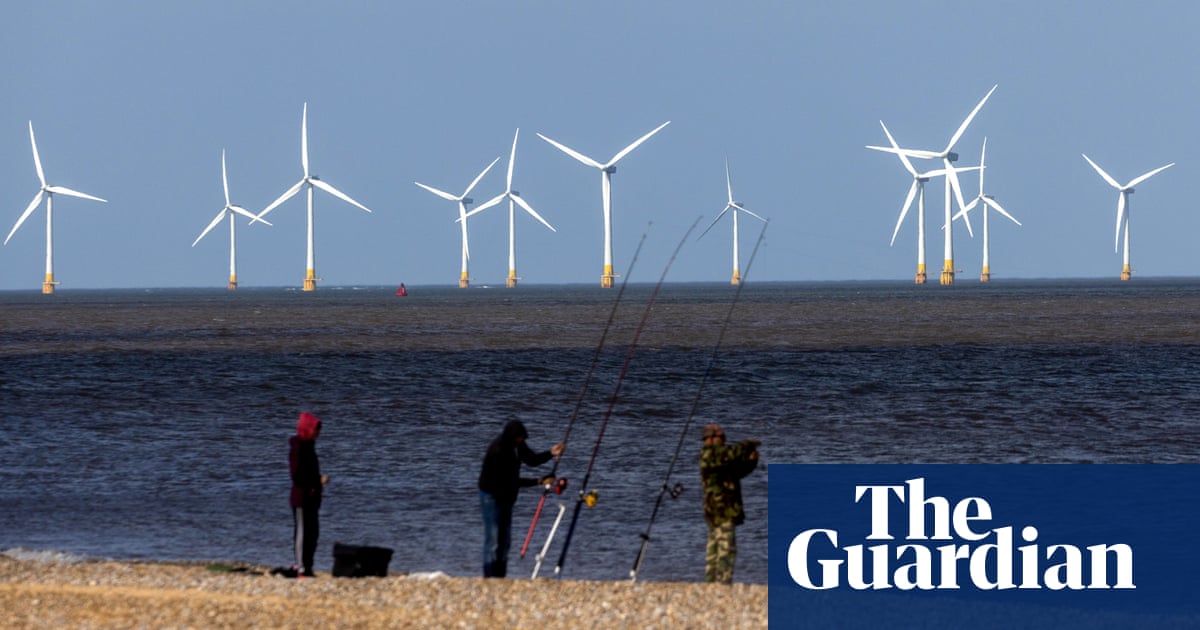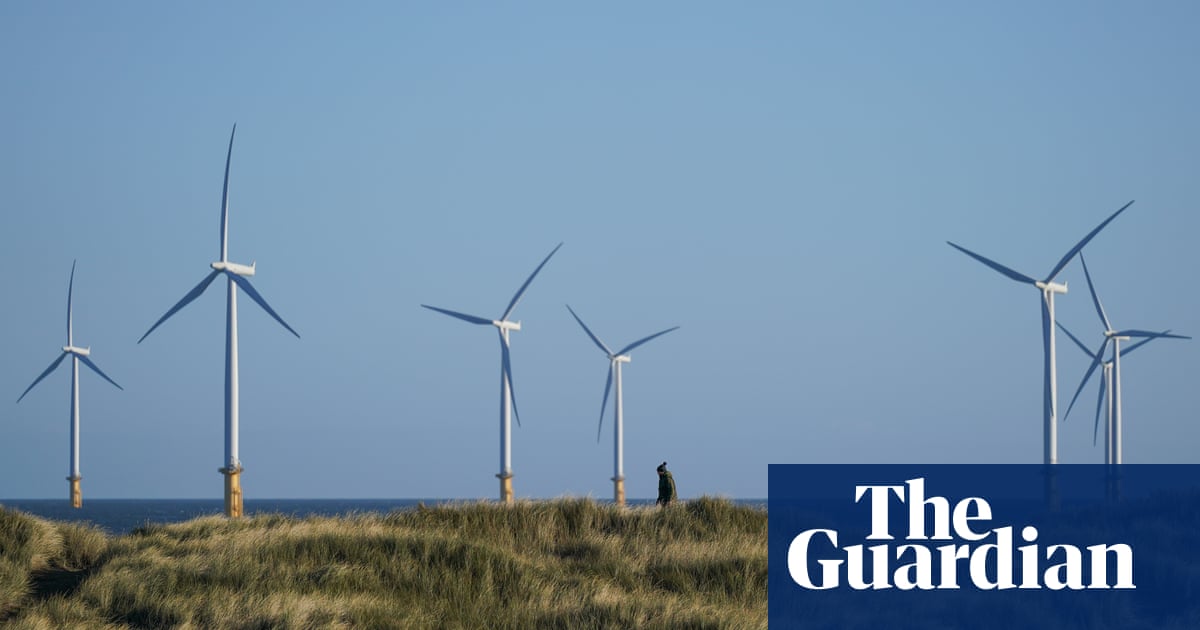
Offshore windfarms risk harming delicate landscapes and vulnerable wildlife habitats if the government fails to coordinate the planning system in its push for a big expansion of clean energy, green campaigners have warned.
The prime minister, Boris Johnson, has promised that every home will be powered by offshore wind by 2030, which will require dozens of new sites for large turbines around the coast.
However, the turbines require connections to the electricity grid and other construction on land, proposals for which are decided by local authorities on a case-by-case basis, and there is little national coordination of their construction.
That means sensitive coastal sites, such as wetlands and marshes that are home to birds and large numbers of other wildlife, could be at risk, according to campaigners. A group of 18 leading environmental organisations, including the RSPB, Friends of the Earth and the Wildlife Trusts, have written to the prime minister to call for better coordination that would ensure a minimum of disruption.
The groups warned that the current planning system was “not fit for purpose”, as it failed to take a strategic view of how such infrastructure could be accommodated in a way that allows fragile and degraded ecosystems to recover from disturbance.
“Offshore wind infrastructure can be designed sensitively for nature if a transparent system of strategic and spatial planning of future offshore wind and associated grid infrastructure is put in place,” wrote the conservation chiefs.
They do not want to place curbs on the number of offshore windfarms or turbines, but called for better planning and communication among local authorities and central government. “Each new development must be planned in the light of better mapping and data about the habitats affected and the cumulative effects of multiple activities.”
If there were more coordination among wind farm developers and local authorities, fewer onshore construction sites, substations and other structures may be needed, without reducing the number of turbines at sea.
The green groups point out that seagrass, saltmarsh and deepsea mud – all of which can be disturbed by offshore windfarm construction – also store large amounts of carbon, so disturbing them to build windfarms is counter-productive.
Richard Benwell, chief executive of Wildlife and Countryside Link, which coordinated the letter to ministers, said: “It’s heartbreaking when action to improve one aspect of our natural world harms another. A headlong race to build offshore wind could be ruinous for marine ecosystems, but it’s not inevitable. With intelligent reform of offshore planning to prioritise space for clean energy and for nature in our seas, the UK can achieve its laudable net zero aspirations at the same time as bringing life back to our ocean.”
The wind industry body said companies were already subject to strict regulations and were working closely with one another and with conservation groups in order to minimise the negative impacts of construction.
Luke Clarke, director of strategic communications at RenewableUK, told the Guardian: “Climate change poses the greatest threat to our ocean habitats and wildlife, so it is vital that we rapidly develop effective solutions, like offshore wind, and that we do so in an environmentally sensitive way. We already work closely and collaboratively with other sea users and wildlife organisations, including many of the signatories to this letter, to maximise the protection of the precious biodiversity in our waters. We share their values as environmentally sensitive developers.”
He added: “Strict rules rightly mean that windfarms can only be built in a way which meets rigorous standards to protect wildlife. Offshore windfarm developers dedicate millions of pounds in funding detailed surveys over a period of years before they build anything as part of the stringent Environmental Impact Assessments process. We will only build projects in the right locations and in an appropriate way, respecting our rich natural environment.”
The conservation groups also raised concerns in their letter over fishing, highlighting damaging activities such as seabed trawling. The government’s fisheries bill has passed without the safeguards environmental campaigners were calling for to prevent overfishing.
“More places will need to be allocated where damaging activities like seabed trawling and other fishing pressures are curtailed,” the leaders wrote. “Fully or highly protected marine protected areas across at least 30% of the sea will be needed to help st our seas on a path to recovery, and must be accompanied by better monitoring, regulation and enforcement of the rules.”












